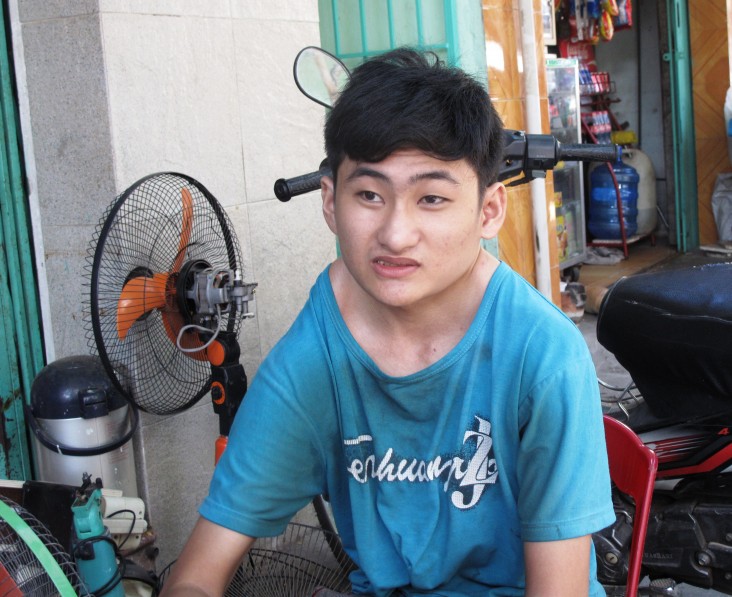
September 2015—Tran Song The, 19, was born into a poor family in Hoa Vang, a rural district of central Vietnam’s Danang province. At birth, he was diagnosed with a congenital deformity. While the condition was not fatal and did not affect his mental development, it caused the muscles and bones in his neck and shoulder to grow abnormally.
The looked different from other boys in the community and encountered stigma and discrimination from his schoolmates. So much so that, when it was time to enroll in high school, The refused to face his peers even though he was a good learner. Since then, his lack of high school education and disability have made it challenging for him to secure a job.
In November 2014, a case manager and local organization in Hoa Vang suggested The participate in a community-based vocational training program supported by USAID’s Persons with Disabilities Support Program. The met with a local case manager from the program to discuss his options. After discussing The’s education background, disability condition and other individual needs, the case manager proposed six months of on-the-job training as an electrician.
After successfully graduating from the program in May 2015, The now works at the electrical repair shop where he apprenticed, earning around $100 per month. In the rural area of Hoa Vang, this monthly salary allows him to significantly contribute to supporting his and his family’s living expenses.
The is one of more than 100 mostly young people in Danang who have benefited from the training program initiated by the local organization for people with disabilities and the Department of Labor, Invalids and Social Affairs, in partnership with USAID. This community-based model not only emphasizes practical skills development, but it also connects trainees directly with employers in their community for in-demand jobs such as photo editor, electrician, hair stylist/barber, motorbike repairman, tailor and handicrafts maker, among others.
Program enrollees are not required to have a specific education background or extensive working experience. Rather, case managers conduct job counseling with them to find a vocation that will suit their individual interests and capabilities. Local business partners offering training opportunities commit to hiring successful trainees after completion of their training.
Developing and earning an income from professional skills that are valued by the community does not just have financial benefits.
“My income is not a large amount,” said The, “but it is enough for my own living expenses. Having this job makes me feel useful and more confident.”
The Persons with Disabilities Support Program runs from October 2012 to September 2015.
LINKS
Follow @USAIDVietnam, on Facebook, on Flickr, on YouTube







Comment
Make a general inquiry or suggest an improvement.